Published
- 01:00 am

DeepTarget Inc., a solution provider that utilizes data mining and business intelligence to deliver targeted engagements across digital channels for financial institutions, today announced its Digital Experience Platform and 3D StoryTeller™ were selected as finalists in the “Best Smart Banking Tech Solution” category of the Banking Tech Awards 2021, powered by FinTech Futures.
The annual award, now in its 22nd year, recognizes innovation in the use of IT in financial services worldwide. The “Best Smart Banking Tech Solution” is awarded to a banking technology solution that leverages emerging and smart technologies, such as artificial intelligence (AI), machine learning (ML), robotics and/or big data, to bring clear and measurable improvements to the organization and customer experience.
DeepTarget’s DXP allows FIs of all sizes to engage their customers throughout their connected digital ecosystem with personalized messaging that has the power to enhance data-powered cross-selling, onboarding and loyalty engagements. The DXP also includes DeepTarget’s 3D StoryTeller™, discoverable AI-powered financial stories, and built-in predictive targeting. This transformative user experience enables financial institutions to uniquely match targeted offers, financial fitness information, relevant onboarding information and relevant community messaging to consumers based on specific financial life stages.
"We are very excited about this international recognition of our innovations!” said Preetha Pulusani, CEO of DeepTarget. “Indeed, it is an honor to stand beside industry colleagues and heavyweights in the Best Smart Banking Tech Solution category. Our intense focus on digital customer engagement and marketing are empowering the digital strategies and transformation of a range of FIs of different sizes as we continue on this mission to ensure that our tech platform is accessible and usable across the board - by the very large as well as very small, community FIs.”
To see the full list of this year’s finalists and for more information about the awards, please visit Fintech Futures. The winners will be announced at this year’s ceremony in London on November 24th, 2021.
Related News
- 07:00 am
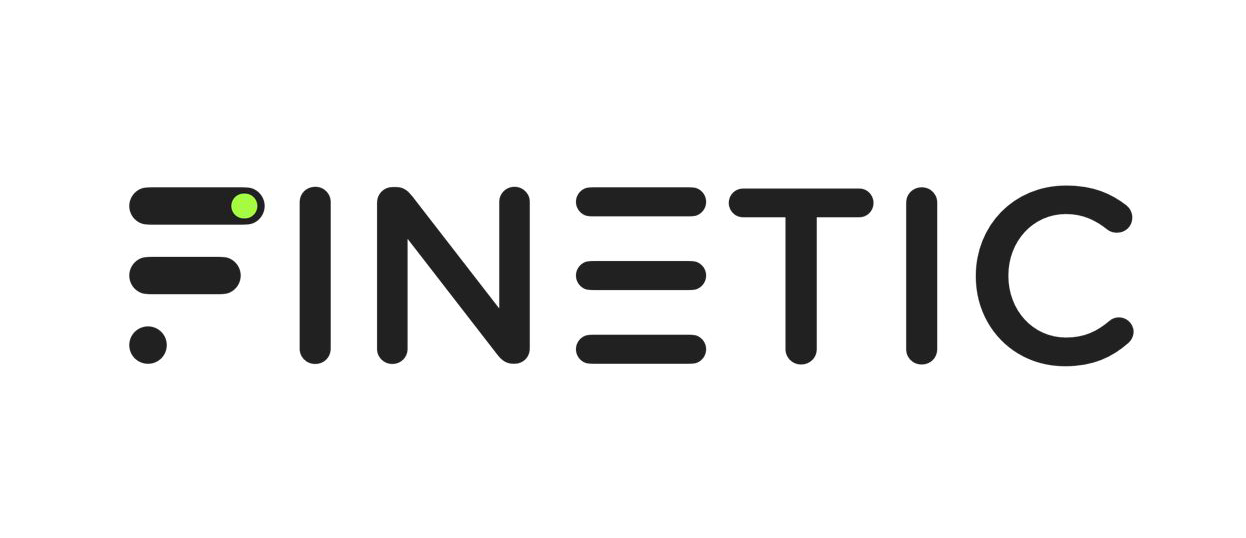
Enhanced AI and Machine Learning Functions Enable Users to Gain More from Precise Decision in Stock Selection and Investment in the Hong Kong and U.S Stock Markets |
Finetic, a Hong Kong-based intelligent stock selection and investment education platform has developed its own AI-assisted investment analysis system, which provides weekly picks of quality stocks in major global markets, including Hong Kong, China and the U.S.. The selection is made by machine-learning analysis of the most up-to-date data of about 2,500 listed companies in Hong Kong, in conjunction with technical analysis as well as review of a unique combination of the factors affecting company stock performance.
HO Man Ho, Percival, Founder and CEO of Finetic Finetic's automatic selection process helps users avoid emotional decision-making and speed up the investment research process contributing to a more profitable outcome in stock investment. Given the unpredictability of the stock market, it takes a long time for individual investors to develop and practice investment skills. Finetic is also offering educational tools and guidance that can simplify the learning curve and further increase the return on investment. Relaunch of Enhanced System and Algorithm Mr. Ho Man-ho, Percival, Founder of Finetic and an experienced investor, created a stock analysis program known as Percival Core (the "system") in 2005. The system collected, analysed and quantified basic and technical (price/volume) data of all Hong Kong stocks. The outcome of the process is a selection of "high-growth stocks", which have a strong foundation and technical characteristics (high potential in substantial price surges). The system has recently been improved with AI components allowing for analysis of even more data and correlations as well as self-learning for better investment outcomes. Apart from data analysis, the improvements allow pattern recognition (including cup and handle, double-bottom, and bottom flat patterns), giving references to users for research and execution of precise investment strategies. Percival said that thanks to the system, he has been able to maintain his capital strength for stock investment over the past 16 years, and managed to avoid the impacts of the 2008 financial crisis. In view of Percival Core's performance, from 2018 onwards, Percival started licensing the system-generated stock selection results then known as Amelia and Swing to third party distributors. In early 2021, Percival stopped licensing the results to third parties due to differences over cooperation terms. However, many users still wanted the stock selection results. In response to popular demand, Percival founded Finetic Ltd., a new intelligent stock selection platform through which the Percival Core system was relaunched into the market in May 2021. Apart from technical design and user experience enhancements, an investor education component directly supervised by Percival has been added to better facilitate users to make profits from investing in quality and profitable stocks. Finetic Chief of Staff Virginia Chan said "The Sunday Club webinars hosted by Percival on the platform are well received by our members. At the events, members can acquire stock investment basics from Percival's experience sharing and insights. Participants can also have their investment-related questions addressed." Enhanced Functions to Optimise Stock Selection Precision Finetic has further upgraded the system by introducing a "Reinforcement Learning" algorithm – creating a complex environment for the AI system to nurture its self-learning capability in the volatile stock market. Percival has also equipped Finetic with a 'supercomputer' (data science workstation) costing over US$25,000 to train the AI system to better perform stock selection. The "Reinforcement Learning" algorithm has the capability of outsmarting its designer and ideation. By receiving AI-recognised 'rewards' whenever Percival Core identifies good stocks, the AI learns from its actions. Through simulated transactions and a track record of stock picks that go through a price surge, the system begins to self-learn and discover the requisite parameters of stocks with explosive growth potential. Finetic is currently applying this advanced technology to the research of stock buy and sell points and is near the final testing phase. Once finalized, Percival Core will be able to find stocks with growth potential as well as their best buy and sell points, which will significantly increase the chance of positive investment returns. Successful deployment of this technology will also provide Finetic with more favorable conditions and advantages to develop in the B2B market. In November, Finetic will participate in Fintech Week 2021, which is co-organised by the Hong Kong Financial Services and the Treasury Bureau and InvestHK. At the exhibition, Finetic will showcase a range of products and services, along with the artificial intelligence pattern recognition technology. That will be an occasion for finance professionals and the investing public to learn more about Finetic's technologies and business development. Looking to Enter the International Market The Percival Core engine has seen continuous improvements since 2005, weathering numerous market shocks including the 2008 financial crisis and COVID-19. Finetic is proud to develop in the well regulated and organised financial sector of Hong Kong, and is eager to take its experience forward to service other international markets. "Finetic has a complete and effective stock selection system catering for the Hong Kong, China A-Share and U.S. stock markets. Its offerings include a complete list of quality stock selections, market analysis and investor tools. In the future, it is planning to further expand its offerings and global audience. Stock selection services for different countries/regions such as Taiwan, Singapore, and the United Kingdom will be launched subsequently in short succession." |
Related News
- 06:00 am

Apple introduced a number of features and tie-ups to enhance its payments offerings and spur user growth.
Apple will let users add COVID-19 vaccine cards to the Apple Wallet.
- The integration builds on Apple’s previous efforts to expand the wallet’s use cases—like supporting student IDs and insurance cards, per TechCrunch.
- The wallet could see an uptick in adoption among Apple users looking for a convenient solution to state governments mandating proof of vaccination to enter public establishments. Those new wallet users might then adopt it for payments as well.
The tech giant enabled a dynamic CVV feature for Apple Card users in iOS 15.
- Advanced Fraud Protection changes the CVV tied to the card each time it's viewed in the Wallet app or after it's auto-filled from Safari, per MacRumors. This makes it so that each transaction carries a unique CVV code, adding an extra layer of security.
- The feature can help create more trust among customers using Apple Card, especially for those who may have been wary following outages in the last few months.
Apple also forged partnerships to expand Apple Pay acceptance.
- Payment and expense management platform PayHawk now lets users add their Payhawk Visa card to Apple Pay, and fintech startup wamo integrated Apple Pay into its app so customers can make QR code payments with the mobile wallet. Cryptocurrency exchange Kraken also recently let users purchase crypto with Apple Pay.
- These tie-ups give Apple Pay users more spending touchpoints, which can help boost the wallet’s payments volume.
The big takeaway: Apple’s latest feature enhancements might push iOS users to adopt its payment offerings and help it gain a stronger foothold in the wider payments space.
Despite Apple’s leadership position in the mobile payments space, the company still has a large addressable market to tap into—less than 40% of iPhone owners use Apple Pay, based on our forecasts. And the company has an estimated 6.4 million Apple Card users out of the 116.3 million iOS users that it’s expected to reach this year, per Insider Intelligence forecasts. Building out offerings with more convenient tools and improved security can help Apple close the gap between the number of Apple-branded payment users and iPhone owners.
Go deeper: For a closer look into Apple’s payments ambitions, including growth opportunities, areas where it can improve, and how it stacks up against competitors, check out the US Mobile Payments Forecast 2021 report.
Related News
- 08:00 am
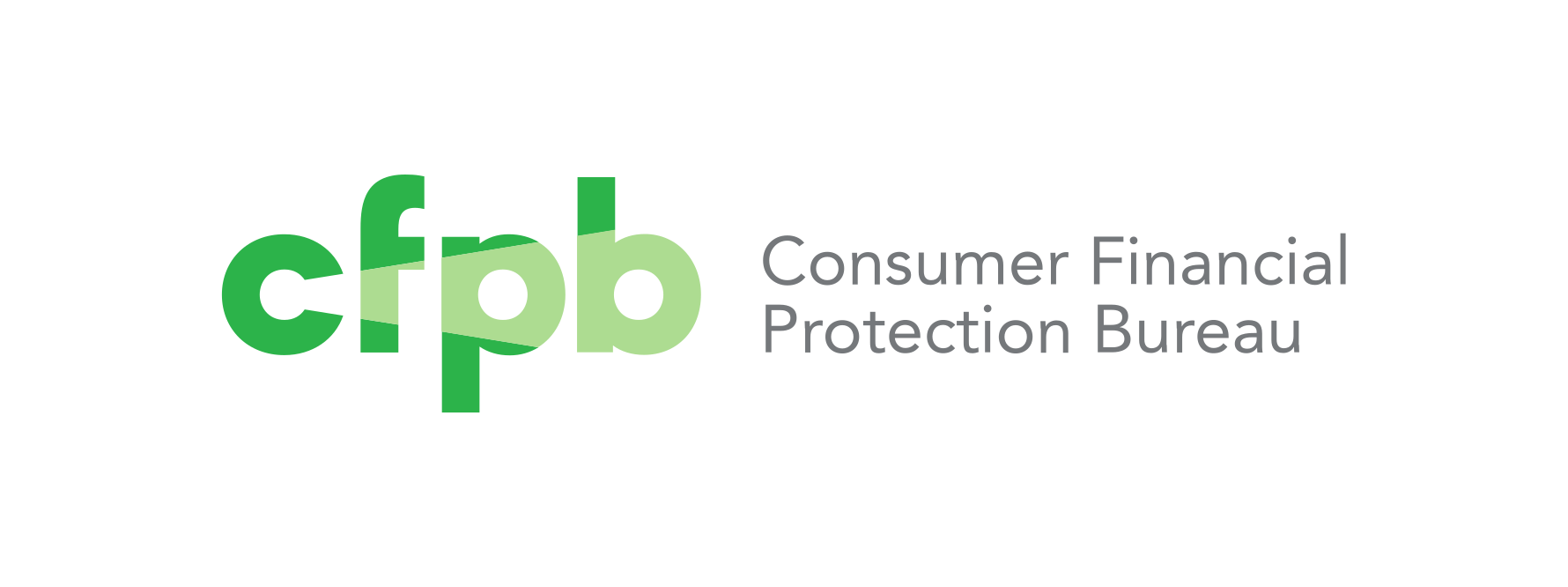
The Consumer Financial Protection Bureau (CFPB) today released its first in-depth report analyzing complaint submission patterns by U.S. Census tract. The report, “Consumer complaints throughout the credit life cycle, by demographic characteristics,” finds that the complaints from wealthier communities and communities with higher percentages of white, non-Hispanic residents were more frequently about loan origination and performing servicing, while the complaints from communities of color and lower income communities were more frequently about credit reporting, identity theft, and delinquent servicing. The findings are based on the nearly 1 million consumer complaints submitted to the CFPB between 2018 and 2020. The report uses a novel approach to classify complaints by matching the relevant consumers to census tract-level U.S. Census demographic data. Today’s report highlights the value of consumer complaint data for understanding the varied experiences of consumers using consumer financial products and services.
“Today’s report confirms that the experiences and concerns of communities, with consumer financial products and services, vary by race and wealth,” said CFPB Acting Director Dave Uejio. “Our consumer complaint data is a crucial tool for understanding varying consumer experiences, including across racial and economic divides.”
The report, the first analysis of its kind, finds that consumers from lower income and predominantly Black and Hispanic communities submitted credit reporting and delinquent servicing complaints at a higher rate per resident than consumers from higher-income and predominantly white, non-Hispanic communities, who were more likely to submit complaints related to loan origination and performing servicing. Asian American and Pacific Islander communities had higher rates of submitting credit reporting complaints than predominantly white, non-Hispanic communities; however, they also had a lower share of delinquent servicing complaints.
Some of the report’s other findings are:
- Complaints about loan originations increased by nearly 50% over the course of 2020, driven largely by mortgage complaints. This increase was centered in higher-income neighborhoods and neighborhoods with fewer people of color.
- Neighborhoods with the highest share of white, non-Hispanic consumers submit complaints about loan originations at more than twice the rate of neighborhoods with the highest share of Black consumers.
- Consumers from neighborhoods with the highest share of Black residents submit the most complaints per resident. Census tracts with the greatest share of Black residents (95% and over) have estimated complaint rates that are double the rates for tracts with the lowest share (5% and under).
- Lower income census tracts (those at or below 40% of their area’s median income) submit around 30% more complaints per resident than census tracts at around 100% of their area’s median income.
- Lower-income and communities of color are more likely to submit complaints about credit reporting, identity theft, and delinquent servicing, while higher-income and majority white, non-Hispanic communities are more likely to submit complaints about origination and performing servicing.
The findings from today’s research brief will help inform the CFPB’s work. The CFPB will continue its research into consumer complaint data as part of its larger commitment to put consumers, and their varying experiences with consumer financial products and services, at the foundation of all its work.
If you are having an issue with a consumer financial product or service, you can submit a complaint to the CFPB at www.consumerfinance.gov/complaint. We’ll work to get you a response from the company.
Related News

Matt Phillips, VP
Head of Financial Services at Diebold Nixdorf UK&I
Commenting on The Treasury’s Access to Cash Consultation closing today, Matt Phillips, VP, Head of Financial Services at Diebold Nixdorf UK&I, says: see more
- 02:00 am
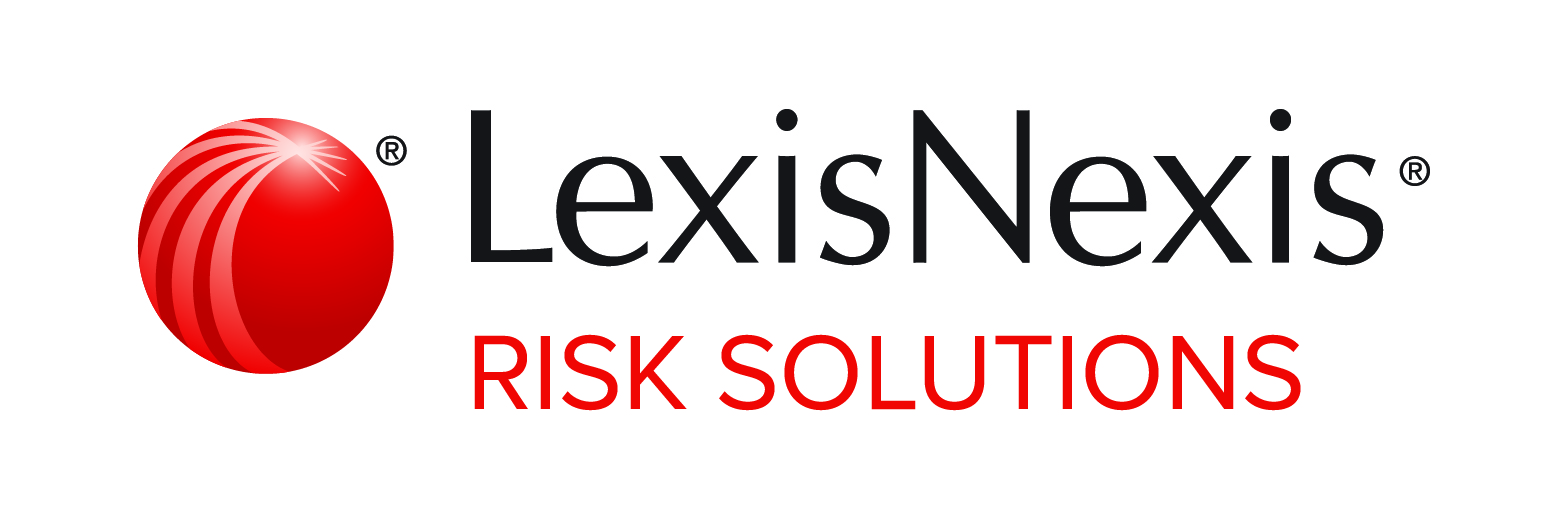
- Less than half (42%) of compliance professionals in the legal sector think that 5MLD will have a net positive impact on their ability to detect and prevent financial crime
Less than half (42%) of compliance professionals in the legal sector think that the Fifth Anti-Money Laundering Directive (5MLD) will have a positive impact on their ability to detect and prevent financial crime according to new research released today by LexisNexis® Risk Solutions, the global data and analytics provider. This is 20% lower than the overall research average of 60% across other regulated industries in the UK, including real estate, banks, lenders, wealth management, accounting and gambling.
Two fifths of compliance professionals (40%) in the legal sector also believe that the regulation will have no impact in mitigating risks, and 14% believe the regulation will have the opposite to its intended effect by negatively impacting their firm’s ability to detect and prevent financial crime.
Adding to the issue, the research found that it is costing the legal sector on average 12% more to implement 5MLD than for other regulated industries, at £940,200 per law firm, compared to an average of just over £836,000 across other sectors.
Nina Kerkez, Director of UK&I Consulting at LexisNexis® Risk Solutions, comments:
“From our substantial research into 5MLD implementation programmes across the UK’s regulated industries, it’s interesting to see that the cost of implementation in the legal sector is substantially higher than the average across other sectors. It is possible that the legal sector, by its nature, deals with clients of higher risk, which in turn require more due diligence performed on them, bringing the costs of onboarding up.
“Without adopting the right tech to streamline compliance checks and create a more flexible, risk-based approach to compliance, law firms face a difficult future in keeping up with changing requirements.
The research appears to reflect the perennial conflict within firms between fee-earners, who want to onboard clients quickly, with minimal friction, and compliance teams who try to minimise the firm’s exposure to risk – an area that 5MLD and the requirement to demonstrate a risk-based approach to compliance are putting additional pressure on.
The reality is, firms can have the best of both worlds; fast, frictionless and safe onboarding, alongside robust and ongoing assessment of client risk that protects the firm from exposure to financial crime, and therefore the reputational and financial damage that could come from dealing with the wrong client.
Given the constantly shifting global political landscape and our 24-hour news cycle, there’s no wonder that 56% of firms surveyed* felt the biggest obstacle AML creates is the time it takes to collate the information. However, by automating processes using big data and smart analytics tools, legal professionals can slash the time taken to conduct checks, and reduce the possibility of error, leaving them free to focus on what’s important – keeping clients happy.
Related News
- 02:00 am
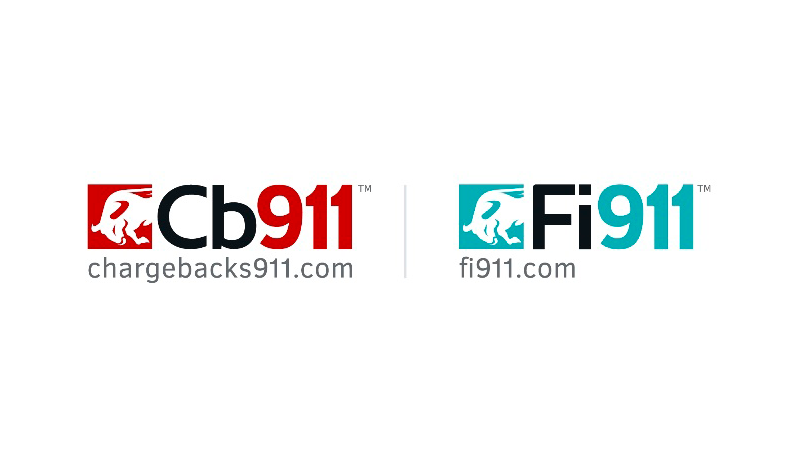
Lichner’s 20+ years of experience will drive Chargebacks911’s global growth and spearhead industry change
Leading dispute technology specialist, Chargebacks911, today announces the appointment of Ex Accertify Head of Dispute Management, Jennifer Lichner, as SVP of Operations.
Jennifer will be responsible for leading CB911’s fast growing day-to-day merchant operations. She joins a hand-picked team of world class operational experts, comprising of long term CB911 veterans and industry specialists.
Having recently celebrated its 10th anniversary, Chargebacks911 has protected over 10 billion transactions to date, recovering billions in falsely disputed or stolen revenue for merchants worldwide.
Bringing more than 20 years of extensive experience, Jennifer has held leading roles in operations, finance and internal audit across the payments, retail and travel industries. She joins Chargebacks911 at a crucial time, as fraud and chargebacks surge in line with ecommerce volumes globally. According to Juniper Research, retailers are expected to lose an additional $130 billion in online fraud. This underlines the urgent need for more agile, data-driven tools to help merchants identify and take control of chargebacks.
Prior to her appointment, Jennifer was Head of Dispute Management Operations at Accertify. There, she oversaw global dispute operations leading large teams across the American Express and Accertify organization.
This latest announcement follows the exciting appointment of payments powerhouse, Brad Dillahunty, as Executive Vice President and Chief Product Officer (CPO) at Chargebacks911 and sister brand Fi911. Brad brings over 25 years of product and technology leadership to the company, with the last decade devoted to leading chargeback and dispute strategy at Mastercard.
Jennifer comments: “I’m thrilled to join Chargebacks911 at such a critical time in the dispute resolution industry. I love the company’s proactiveness and focus on innovation, to provide merchants with the tools and knowledge they need to protect their business. Chargebacks911 offers the best solutions in the industry, and my ambition is to continue to grow and innovate, spearheading change and tapping into the countless global opportunities.
“I think about things in terms of numbers – measuring performance, creating structures, and putting controls in place that ensure we execute all we need to deliver. At our current growth rate, it’s crucial that we remain thoughtful about client acquisitions to ensure we always drive efficient and sustainable operations.”
Monica Eaton-Cardone, Co-Founder and COO of Chargebacks911 and Fi911, comments: “With the incredible growth trajectory Chargebacks911 is experiencing, solid operational processes are more vital than ever. Jennifer’s background and focus on operational excellence combined with a history of building high performing teams within the payments industry will allow us to continue to scale our company’s growth. This will ensure we provide our customers with peace of mind that we have them covered.”
Related News
- 05:00 am

Nearly 25% of Fortune 500 Now Rely on Cohesity; Company Delivers Record-Breaking Metrics in ARR and Net Expansion; Annual Revenue Run Rate Surpasses $300M
Cohesity has announced record-breaking fourth quarter and fiscal year 2021 results, ending on 31 July, 2021.
Fueled by strong demand for the company’s next-gen data management technology, Cohesity saw a large increase in the number of Fortune 500 companies embracing its technology. Cohesity also delivered results that further emphasize the success of the company’s subscription-based software model.
Cohesity’s next-gen approach to data management provides simplicity at scale, ransomware protection built on the principles of zero trust security, and AI-powered insights to make it even easier for companies to derive value from data.
“Our record-breaking results underscore the tremendous value our unique next-gen data management platform offers our customers,” said Mohit Aron, CEO and founder, Cohesity. “More businesses than ever trust Cohesity to manage their data in a world in which ransomware attacks are soaring, hybrid cloud is the norm, and the need to derive value from data has never been greater.”
Financial Highlights:
- Strong subscription business: Cohesity’s annualised revenue run rate surpassed $300 million in the most recent quarter. The company also achieved more than a 70% increase YoY in annual recurring revenue (July 31, 2021 over July 31, 2020).
- Strong net expansion rate: Cohesity’s net expansion rate — or the rate of expansion net of churn from existing customers over the last year — continues to exceed 130% as of July 31, 2021, a benchmark for leading subscription/SaaS companies. This means that ARR from Cohesity’s existing customer set grew more than 30% over the last 12 months.
- Rapid customer growth globally: Cohesity saw a 40% increase YoY (July 31, 2021 over July 31, 2020) in the number of customers doing business with the company, with rapid adoption in the Americas, EMEA, and Asia Pacific regions. Cohesity’s customer count is now approximately 2,600.
- Rapid adoption among the Fortune 500: As of the end of Q4, nearly 25% of the Fortune 500 do business with Cohesity, an increase of more than 35% YoY (July 31, 2021 over July 31, 2020). Cohesity customers include four of the Fortune top 10 as well as three of the top ten U.S. banks* and three of the top five U.S. health insurers.**
“In Q4, we had our biggest day, week, month, and quarter, all resulting in our biggest year,” said Robert O’Donovan, chief financial officer, Cohesity. “From rapidly increasing ARR, to an outstanding net expansion rate, to strong customer growth — including impressive gains in the Fortune 500, the company is firing on all cylinders and breaking records at every turn.”
“Our data has never been more important to the success of our business — on the field and off — which is why we rely on Cohesity’s next-gen data management solutions,” said Bill Schlough, senior vice president and chief information officer, San Francisco Giants. “We believe Cohesity’s platform approach, which offers simplicity at scale and security that is designed for the cloud era, is truly unique in the industry. Not only is it far easier to deploy and manage, but it gives us peace of mind knowing our data is backed up, protected, and easily recoverable in this ransomware era.”
“Cohesity offers a next-gen approach to data management by consolidating data and apps onto a single platform called Helios designed for simple management through a single UI,” said Phil Goodwin, research vice president, IDC. “Cohesity is aiming to provide a consolidated data management platform across the enterprise, including data centers, cloud, and edge. This could offer many advantages for eliminating data silos when compared to the effort of managing numerous environment-specific tools.”
Expanded Board Leadership:
Over the past 12 months, Cohesity has expanded its Board of Directors and Cohesity Advisors to include Robin Matlock, Bask Iyer, and, most recently, Kimberly Hammonds.
- Kimberly Hammonds: Hammonds, Cohesity’s newest board member, was previously the group chief operating officer of Deutsche Bank AG, where she was the third female in the company’s 150-year history to serve on the management board. She is a former group chief information officer for the Boeing Company, and advises multiple private technology companies, including Zoom, UiPath, Tenable, and Box.
- Robin Matlock: Matlock joined Cohesity’s board in January. She was most recently chief marketing officer at VMware. During her 11 years at VMware, she helped shape the company’s business and go to market strategy and played a key role in scaling the company’s revenues from $2 billion to $11 billion. Prior to that, she held senior marketing roles at Imperva and McAfee.
- Bask Iyer: Iyer recently became a Cohesity Advisor. He served as chief information and digital transformation officer for VMware and has more than 30 years of experience executing and driving change at Fortune 100 manufacturing and high-tech companies, including SaaS transformations.
Fiscal Year 2021 Advancements and Accolades:
In fiscal year 2021, Cohesity continued to rapidly innovate, help customers win the war against ransomware, and garner leadership positions in key reports. The company’s success in many of these areas was fueled by Cohesity’s next-gen data management platform that helps ensure data is available, visible, compliant, movable, accessible to third-party apps, protected and easily recoverable — critical in an age of escalating cybersecurity threats.
- Protecting customers from ransomware attacks: Sky Lakes Medical Center, a Cohesity customer, was hit by a ransomware attack and was able to rely on Cohesity to successfully recover all of its servers and applications — without paying a penny of the ransom. Not only did the effort save the health care provider money, but it helped the company potentially save lives.
- Igniting a new era in simplified data management via SaaS deployments and AWS: Cohesity announced a strategic collaboration with Amazon Web Services (AWS) to bring to market Data Management as a Service. This unique solution, which is gaining traction in the market, provides customers with a radically simple way to back up, secure, govern, and analyse their data, all managed directly by Cohesity and hosted on AWS. Additionally, Amazon made an equity investment in Cohesity.
- Recognition from leading analyst firms:
- Named a Leader, for the second consecutive year, in the 2021 Gartner Magic Quadrant for Enterprise Backup and Recovery Software Solutions report.
- Named a Customers’ Choice in the Gartner Peer Insights ‘Voice of the Customer’: Data Center Backup and Recovery Solutions report.
- Named a Customers’ Choice in the Gartner Peer Insights ‘Voice of the Customer’: Distributed File Systems and Object Storage report.
- Named a leader for two years in a row in the GigaOm Radar for Hybrid Cloud Data Protection for the Enterprise report.
- Named to the prestigious 2021 Forbes Cloud 100 for the third year in a row.
Related News
- 06:00 am

Davidson Kempner currently owns an aggregate 11.4 million shares (3.2% of the share capital), has been a substantial long-term investor in Deutsche Wohnen SE, one of Europe's largest property companies over many years and has engaged in an extensive dialogue with the Management during this period. Davidson Kempner has also been an investor in Vonovia.
Vonovia and Deutsche Wohnen Have Circumvented Shareholder Rights
Vonovia launched an opportunistic bid for Deutsche Wohnen and offered key members of the Management Board of Deutsche Wohnen (the "Target Board") attractive roles in the enlarged company. The Target Board has subsequently taken a number of initiatives that are unprecedented and legally questionable, with the sole purpose of helping Vonovia acquire control in the face of shareholder resistance to the offer terms.
Despite the majority of Deutsche Wohnen shareholders rejecting the original offer, the Target Board agreed an amended offer very quickly with a minimum adjustment to the offer terms. Recognising the risk that the amended offer would be rejected once again, the Target Board also included a number of measures to ensure Vonovia's success:
i. Providing Vonovia with almost ~10% of Deutsche Wohnen shares via:
a. The sale of 3.53% of treasury shares for €52/share (below the takeover offer of €53/share)
b. The sale of a further 0.93% of treasury shares at €53/share
c. The issuance of primary shares amounting to 5.17% on a fully diluted basis
ii. Agreeing to waive all conditions, which forces many shareholders to sell or tender their shares as the takeover is effectively considered as "over" prior to Vonovia even acquiring the majority support of Deutsche Wohnen shareholders. The Board has effectively handed control to Vonovia and worked around its own shareholders.
In aggregate, these measures have severely undermined shareholder rights and in particular, their prerogative to decide on takeover offers. Against a background of the conflicts of interest of certain Deutsche Wohnen Board members, this makes the situation even more disturbing and raises serious corporate governance concerns in the German market.
This is a Dangerous Precedent for German Corporate Governance
Vonovia and Deutsche Wohnen have demonstrated that as long as the Management and Supervisory Boards of both companies want a deal to come together, shareholders' opinions and voting rights can largely be cast aside. This creates a dangerous precedent in Germany, in which Management Boards can effectively decide the fate of a company and undermine shareholder democracy.
There is now a serious threat that Vonovia makes a delisting offer for Deutsche Wohnen, a large DAX company with a significant free float. A delisting provides no meaningful benefit to Deutsche Wohnen and it effectively forces many public shareholders to sell or tender their Deutsche Wohnen shares and enable Vonovia to increase its control. Many market observers and German institutions saw this aggressive measure used in the Rocket Internet delisting offer in 2020, another situation marred by material corporate governance failures.
Davidson Kempner Has Taken Legal Action and Will Hold the Board Accountable
Davidson Kempner has applied for an injunction to prevent the primary share issuance of 5.17% and the sale of 0.93% treasury shares. Davidson Kempner also reserves its rights to pursue other legal action.
Related News
- 03:00 am
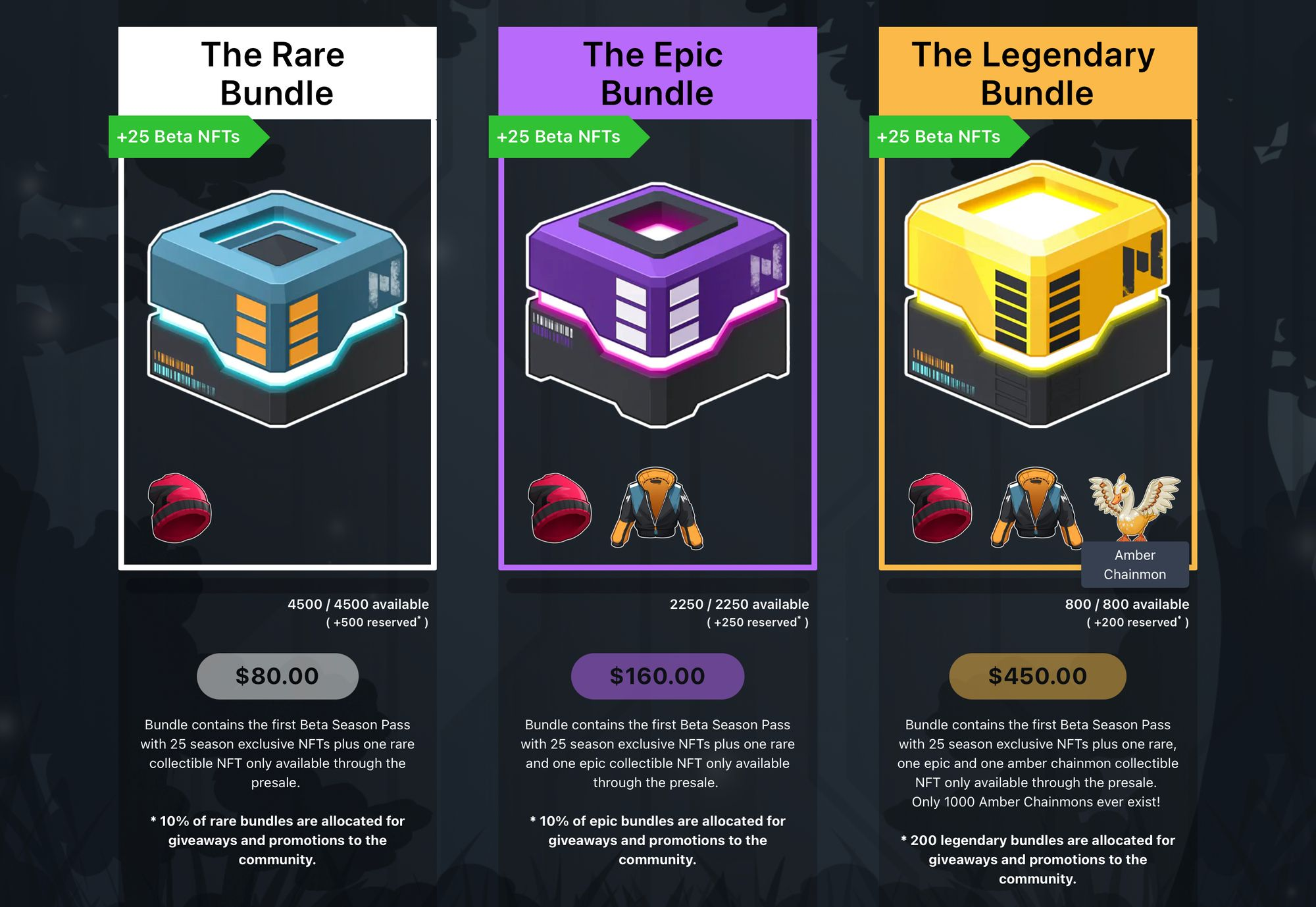
- Blocto wallet users will have access to the NFT marketplace for popular online multiplayer game Chainmonsters
- MoonPay’s payments infrastructure will power the fiat-to-crypto on-ramp so users can purchase games on Flow’s blockchain
- MoonPay’s payments solution supported Chainmonsters’ successful ‘Genesis Drop’ on September 14, which featured exclusive NFTs and sold out within 90 minutes
Today MoonPay, the global payments solution for cryptocurrency, has announced its partnership with crypto wallet provider Blocto to enable an industry-first wallet with a fiat on-ramp into the Flow ecosystem. This new partnership offers easy access to the NFT marketplace for online role-playing game Chainmonsters, including the recent exclusive NFTs in its successful Genesis Drop on September 14th.
MoonPay’s unique fiat on-and-off-ramp capabilities democratize blockchain access by enabling users to participate directly through traditional fiat payment methods. This collaboration will ensure all gamers have access to Chainmonsters and can enter the marketplace if they use the Blocto wallet. Through integration with MoonPay, users can use the fiat on-ramp to buy FUSD, Flow’s native token.
One of the most popular games on Flow’s ecosystem is Chainmonsters, an online multiplayer game with >52,000 users inspired by classics such as Pokemon and The Legend of Zelda. Users can connect their Blocto wallet to their Chainmonsters account to have full access to its NFT marketplace.
Blocto’s integration with MoonPay means it will be the first crypto wallet in the Flow ecosystem to have a full on-ramp capability. As such, users will be able to use methods such as debit cards or Apple Pay to convert their US dollars into FUSD when making purchases.
MoonPay’s fiat on-ramp has already supported Chainmonsters’s Genesis Drop on September 14 which saw all bundles sold out within 90 minutes. This included exclusive bundles that contained Chainmonsters’ unlocked first Beta Season Pass, with 25 Beta-Season-1 exclusive NFTs and highly exclusive collectibles like the Amber Chainmon that only exist 1,000 times and will never be obtainable again.
Ivan Soto-Wright, co-founder and CEO of MoonPay said: “Our mission at MoonPay has always been to make fiat-to-crypto transactions as simple as possible. The blockchain industry continues to take massive leaps into the mainstream. As blockchain-based games such as Chainmonsters become increasingly popular, we’re excited to be partnering with Blocto to offer a new and easy experience for fuelling blockchain games.”
Hsuan Lee, CEO of Blocto said: “The key to ensuring blockchain’s mainstream’s adoption is a two-part process: creating exciting DApps such as Chainmonsters, but then also making sure they are easily accessible. After recently debuting our first NFT at The First Mint in July, we’ve had an influx of close to 90,000 users, all of which are excited to participate in impressive new projects. We’re pleased we can collaborate with a like-minded partner like MoonPay to offer them, and existing users, a new and easy experience for blockchain games.”










